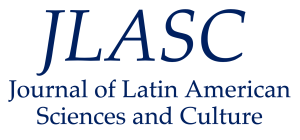Exploration on the integration of innovation and entrepre-neurship education into the talent training system of colleges and universities under the background of double-first con-struction
DOI:
https://doi.org/10.52428/27888991.v4i5.273Palabras clave:
double-first background; entrepreneurship education; talent trainingResumen
Science and technology and innovation are the main drivers of social development at this stage. Modern national governance and education system should further improve the strength of innovation and entrepreneurship education. However, at present, some colleges and universities focus on professional subject education, and have insufficient knowledge and attention to innovation and entrepreneurship education. Even if they offer entrepreneurship-related courses, there are still problems such as ambiguous teaching content, weak entrepreneurship teaching atmosphere, and utilitarian teaching objectives. To this end, this paper focuses on the national double-first construction strategic tasks, innovative talent training system research, and colleges and universities’ innovative talent training plan.
Descargas
Citas
Cabero Z., M. A. (2019). The pillars of excellence in education in the new era. Journal of Latin American Sciences and Culture, 1(1), 6-9. https://doi.org/10.52428/27888991.v1i1.37. DOI: https://doi.org/10.52428/27888991.v1i1.37
Guachi, R. (2019). Connection between industry and academy. Journal of Latin American Sciences and Culture, 1(1), 13-14. https://doi.org/10.52428/27888991.v1i1.39. DOI: https://doi.org/10.52428/27888991.v1i1.39
Wen, Y. (2019). Double-first, Value Pursuit and Implementation Strategies of In-novation and Entrepreneurship Education in Colleges and Universities. The-oretical Research and Practice of Innovation and Entrepreneurship, 1(7), 1-3. https://t.cnki.net/kcms/detail?v=z7EBh5rfV03OuUePg3xlaFsJrnhyYG1__l1nZWr-VADn4yhFJluAACskXWloUYqsk1WteYgJJuBbgHgnzQ5Pyxqqfo2r34-2Zlz_TIOR1xPEU17T16mc47Kf7ENXrRpe9&uniplatform=NZKPT&language=CHS.
Xie, H., Chen, Z., & Li, Q. (2020). Non-double-first, the predicament and coun-termeasures of the cultivation of innovative and entrepreneurial talents in col-leges and universities. Xueyuan, 13(19), 87-88. https://t.cnki.net/kcms/detail?v=z7EBh5rfV02Rz98nWrrSxhylWo_ecrpBpNwtUkG509BwGjTGq9K9aXreMT_mU73Im3rF9-MGovwkuLLJok0RWtahB2JWjOVtR6yrySGkFVvOqjZeVShYqsi7bReDtpCt&uniplatform=NZKPT&language=CHS.
Yang, L., & Wang, L. (2020). Double-first, the construction of innovation and en-trepreneurship education system in private colleges and universities under the background. Journal of Chifeng University (Chinese Philosophy and Social Sciences Edition), 41(7), 89-92. https://t.cnki.net/kcms/detail?v=z7EBh5rfV02udqhUmhfBVj1cXHMcXn_9LIizrbBWyH-Fi-AHohMnNS1UuSUQC5aa7rapWwpsTsUlUP_hIWy99FeI-kH1pYReuDlTsm5Sb0A9ebuIlDo9nfVgGwmllM8dM9&uniplatform=NZKPT.
Zhou, Y. (2021). Double-first, reflections on the sustainable development model of innovation and entrepreneurship education in colleges and universities under the background of construction. Theoretical Research and Practice of Inno-vation and Entrepreneurship, 4(7), 93-95. https://kns.cnki.net/kcms/detail/detail.aspx?FileName=CXYL202107043&DbName=CJFQ2021.

Archivos adicionales
Publicado
Cómo citar
Número
Sección
Licencia
Derechos de autor 2022 Journal of Latin American Sciences and Culture

Esta obra está bajo una licencia internacional Creative Commons Atribución 4.0.
Authors who publish in this journal agree to the following conditions: Authors retain copyright and grant the journal the right of first publication, with the work licensed under a Creative Commons Attribution 4.0 International License, which allows others to use the published work provided they acknowledge the authorship and initial publication in this journal. Authors may enter into separate, additional contractual agreements for the non-exclusive distribution of the version of the article published in this journal (e.g., posting it to an institutional repository or publishing it in a book), provided they clearly indicate that the work was first published in this journal. Authors are permitted and encouraged to share their work online (e.g., in institutional repositories or on personal websites) before and during the manuscript submission process, as this can lead to productive exchanges and increased and faster citation of the published work.








